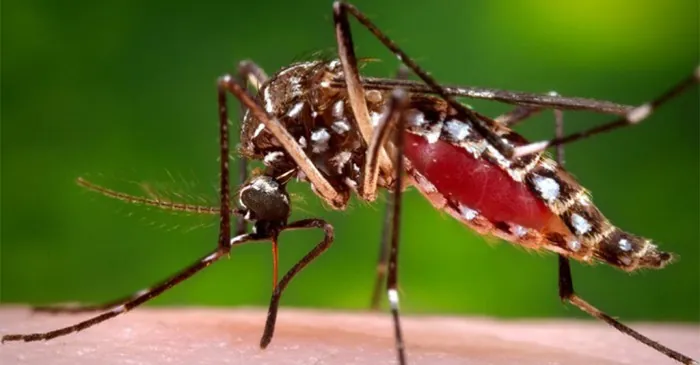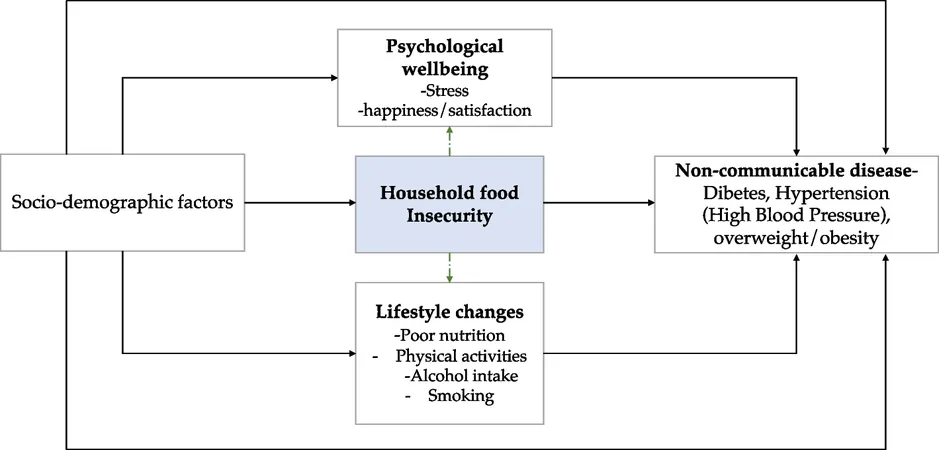
Dengue Crisis Looms as Monsoon Approaches: Are We Prepared?
2025-04-06
Author: Daniel
Dengue Crisis Looms as Monsoon Approaches: Are We Prepared?
As the monsoon season approaches, experts are sounding the alarm about a potential spike in dengue fever cases due to an increase in the population of Aedes mosquitoes. Entomologists warn that if immediate and effective control measures are not implemented by health authorities, the impact could be devastating.
According to Golam Sarwar, an entomology professor at the National Institute of Preventive and Social Medicine, the conditions for a dengue outbreak are ripe. "All the elements needed for the spread of dengue— the virus, the vector (mosquitoes), and conducive temperatures— are present," he cautioned. The beginning of 2025 has already seen a concerning trend, with new dengue patients being detected daily, and Sarwar predicts that rainfall could exacerbate the situation significantly.
Although the current mortality rate is not alarming, the high number of hospitalizations and increasing mosquito presence are troubling indicators. In just the last 24 hours, the Directorate General of Health Services (DGHS) reported that 52 people were hospitalized due to dengue, following a recent fatality that raised the death toll to 14 for the year. Comparatively, in 2024, there were 22 deaths from dengue and 1,747 hospitalized during the same timeframe.
Details reveal that among the deaths reported this year, ten occurred in January, three in February, and one in April, while no fatalities were documented in March. This sharp increase underscores the urgency for vector control measures.
Jahangirnagar University’s vector management expert, Kabirul Bashar, adds that although the majority of mosquitoes currently remain Culex species, the alarming rise of Aedes mosquitoes poses a significant threat. "If we cannot manage the Aedes population effectively, we could witness an unprecedented outbreak," he warned.
A previous dengue outbreak in 2023 led to 1,705 deaths and over 321,000 hospitalizations, significantly higher than the historical averages prior to 2023 which recorded a cumulative 853 deaths from dengue between 2000 and 2022. Last year alone saw 575 deaths and over 101,000 reported cases, indicating that the country has been on the frontline of a dengue crisis.
Authorities claim to be acting proactively, with Dhaka South City Corporation administrator Md. Shahjahan Mia stating, "We are carefully executing our routine to control mosquito populations, utilizing efficient insecticides, spraying to kill larvae, and fogging to eliminate adults." These measures are critical, but many fear they may not be enough.
Recent data from the Institute of Epidemiology Disease Control and Research (IEDCR) indicates that three out of the four dengue virus serotypes are prevalent in the country this year, leading health experts to speculate that the existing variants could pose an increased risk. However, a comprehensive updated study by the IEDCR has not been released, causing concern regarding the current understanding of the disease’s spread.
Moreover, the Bangladesh Meteorological Department has projected more early rains this month, further complicating the fight against dengue. MD Halimur Rashid, a DGHS line director, has announced plans for a pre-monsoon survey to assess Aedes mosquito populations, emphasizing the collaborative responsibilities between health agencies and local governments.
However, challenges arise from funding constraints, delaying crucial surveys that could inform mitigation strategies. Some insiders disclosed that a shortage of resources has stalled the initiation of these important assessments.
Experts emphasize that the dengue threat not only looms large over urban centers like Dhaka but also in rural areas such as Cox's Bazar, Barguna, Barishal, Mymensingh, and Chandpur, where management systems are notably lacking. The ideal breeding conditions for Aedes mosquitoes exist between temperatures of 20°C to 33°C, and any increase beyond this could, paradoxically, help mitigate their proliferation.
As society braces for another rainy season, experts warn: the time for action is now. Without immediate intervention, this year could see a repeat of last year's devastating outbreaks or worse. Preparedness is key—because the next dengue wave may already be on the horizon!



 Brasil (PT)
Brasil (PT)
 Canada (EN)
Canada (EN)
 Chile (ES)
Chile (ES)
 Česko (CS)
Česko (CS)
 대한민국 (KO)
대한민국 (KO)
 España (ES)
España (ES)
 France (FR)
France (FR)
 Hong Kong (EN)
Hong Kong (EN)
 Italia (IT)
Italia (IT)
 日本 (JA)
日本 (JA)
 Magyarország (HU)
Magyarország (HU)
 Norge (NO)
Norge (NO)
 Polska (PL)
Polska (PL)
 Schweiz (DE)
Schweiz (DE)
 Singapore (EN)
Singapore (EN)
 Sverige (SV)
Sverige (SV)
 Suomi (FI)
Suomi (FI)
 Türkiye (TR)
Türkiye (TR)
 الإمارات العربية المتحدة (AR)
الإمارات العربية المتحدة (AR)